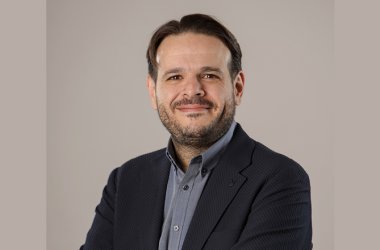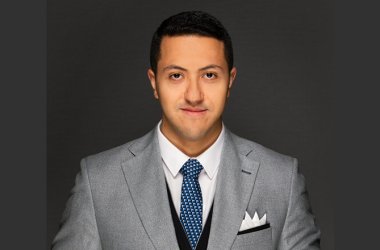
Art Gilliland, Chief Executive Officer at Delinea, examines the value of public-private sector collaboration in achieving national economy agendas and the role of identity security in digital ecosystems as part of our interview series.
How do you see your organisation contributing to the region’s bold and ambitious national digital economy agendas and where do you believe private–public collaboration will be most critical in achieving these ambitions?
At Delinea, we believe that secure digital identity is the foundation of every successful digital economy. Across the Middle East, governments are pursuing ambitious transformation programs that prioritise innovation, trust, and sovereignty – from Saudi Arabia’s Vision 2030 and National Data & AI Strategy, to the UAE’s Digital Government Strategy 2025 and Sovereign Cloud initiatives. These programs all share a common thread: a commitment to data sovereignty, responsible AI, and zero-trust principles that protect national interests while enabling global competitiveness.
Delinea contributes to these goals by helping organisations establish identity-first security architectures that provide complete visibility and control over every human, machine, and AI identity across hybrid and multi-cloud environments. This aligns directly with regional efforts to ensure data stays protected within national borders, AI systems are governed responsibly, and access is granted only when and where it’s needed.
Public-private collaboration will be especially critical in three areas:
- Sovereign cloud and AI infrastructure: Governments and technology providers must co-develop frameworks that uphold local data control while enabling innovation at scale.
- Responsible AI governance: Shared standards and AI councils can bridge policy and practice, ensuring safe, compliant adoption of generative and agentic AI.
- Zero-trust and identity modernisation: As national economies digitize, private partners can help accelerate the deployment of zero-trust architectures that secure the expanding identity fabric across sectors.
By combining national vision with private-sector innovation, the region can create a resilient digital foundation built on security, trust, and shared accountability.
As emerging technologies such as Gen AI and Agentic AI continue to reshape industries, how do you strike the right balance between rapid adoption for competitive advantage and ensuring resilience, security and regulatory alignment?
AI governance, not restriction, is the key to striking that balance. Generative and agentic AI can deliver enormous productivity and innovation gains, but only if organisations maintain control and visibility over how these tools are being used. Delinea’s research shows that 93% of organisations have already experienced some form of shadow AI use, highlighting a gap between policy and practice.
We help organisations strike the right balance by putting flexible guardrails in place, like identity-first access controls for both humans and AI agents. This allows organisations to innovate safely, ensuring AI adoption aligns with an organisation’s risk appetite, regulatory requirements, and long-term resiliency strategies. The goal isn’t to slow AI down, but to make it secure by design.
What role do you believe technology leadership should play in redefining business models and creating new value ecosystems across the Middle East?
Technology leaders now sit at the intersection of innovation and risk. In the Middle East, where digital transformation is accelerating at national scale, their role is to enable secure experimentation by helping organisations embrace AI, automation, and cloud technologies without compromising security or compliance.
CIOs and CISOs must move from being policy enforcers to architects of trust. By embedding identity security and governance into the fabric of digital ecosystems, they can unlock new business models built on secure data sharing, intelligent automation, and cross-sector collaboration. At Delinea, we partner with technology leaders across the region to help them transform identity from a control point into a catalyst for innovation, trust, and growth.
Looking ahead, which transformative technologies do you believe will define the region’s global standing over the next decade; and how are you preparing your organisation to lead in that shift?
We believe the next decade will be defined by intelligent identity ecosystems, powered by AI, automation, and secure cloud platforms. As the Middle East positions itself as a global hub for digital innovation, technologies such as agentic AI, machine-to-machine management, and autonomous security systems will be central to that vision.
Delinea is preparing for this shift through our Delinea Platform, powered by Iris AI, which provides full visibility and control over every identity – human, machine, and AI. The platform automates discovery, classification, and governance of all privileged accounts, enforcing just-in-time access and continuous monitoring to prevent misuse or compromise. We see our role as enabling the region’s organisations to innovate with confidence by embracing AI and emerging technologies knowing that their identity security is strong, resilient, and future-ready.
Image Credit: Delinea





